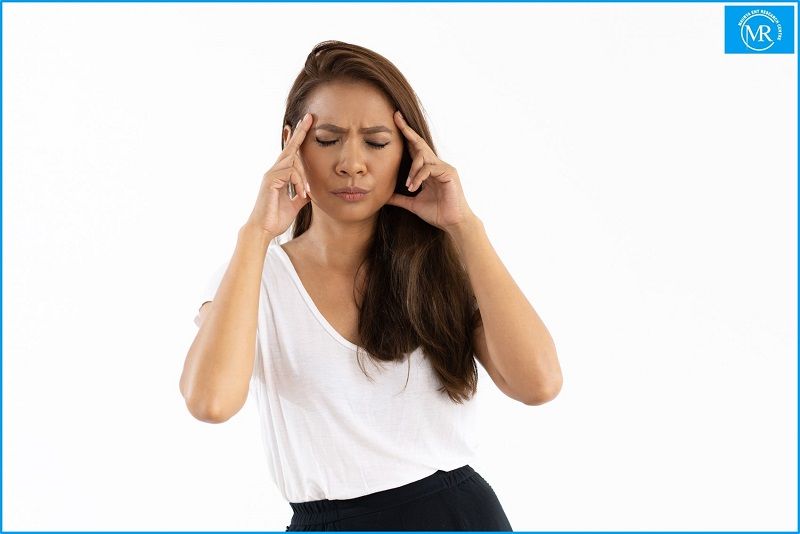Read this blog to know How Vertigo Happens, its Symptoms and available Treatment. Also, know about the Best Vertigo Treatment Centre in Patna for top treatment results………
Vertigo Meaning
Vertigo is a symptom, rather than a condition. Dizziness is a term used to describe a range of sensations, such as feeling unsteady, faint, woozy or weak. It creates a false sensation that the surroundings are moving or spinning.
Other symptoms associated with vertigo may include:
- Light-headedness or feeling faint
- Feeling sick or being sick
- A feeling of floating, wooziness or heavy-headedness
- Unsteadiness or loss of balance
These feelings may get worsened or triggered by moving the head, walking, or standing up. Also this condition may be accompanied by nausea or be so sudden that one need to sit or lie down.
How Long Does Vertigo Last
Vertigo Attacks or Dizziness can develop suddenly and last for a few seconds, or they may last much longer. However, if one have severe vertigo condition, then its symptoms may be constant and last for several days, making normal life very difficult.
So, if looking for Vertigo Specialist in Kankarbagh Patna, then contact Dr. A P Shah, for top Dizziness and Vertigo Treatment in Patna.
How Vertigo Happens
Various conditions can lead to Vertigo Attack, which usually involves either an imbalance in the inner ear or a problem with the Central Nervous System (CNS). However, main conditions that can lead to vertigo include the following:
Labyrinthitis
Labyrinthitis can happen when an infection causes inflammation of the inner ear labyrinth. Within this area is the vestibulocochlear nerve. This nerve sends information to the brain about head motion, sound, and position.
Apart from dizziness with vertigo, a person with Labyrinthitis may experience headaches, ear pain, tinnitus, and vision changes.
Vestibular Neuritis
An infection causes Vestibular Neuritis, which is inflammation of the vestibular nerve. It is similar to Labyrinthitis, but this does not affect a person’s hearing. This condition causes vertigo that may accompany severe nausea, blurred vision, or a feeling of being off balance.
Cholesteatoma
This noncancerous skin growth develops in the middle ear, usually due to repeated infection. As this grows behind the eardrum, it can damage the middle ear’s bony structure, leading to dizziness and hearing loss.
Meniere’s Disease
This disease is caused due to a buildup of fluid in the inner ear, which can lead to attacks of vertigo with ringing in the ear and hearing loss. This conditions tends to be the most common Causes of Vertigo in Elderly.
Moreover, the exact cause of this condition is unclear, but it may stem from blood vessel constriction, a viral infection, or an autoimmune reaction. There may also be a genetic component that it runs in some families.
Benign Paroxysmal Positional Vertigo (BPPV)
The inner ear contains structure called the otolith organs, which contain particles of crystals of calcium carbonate and fluids. In BPPV, these crystals become dislodged and fall into the semicircular canals. There, each fallen crystals touches sensory hair cells within the cupula of the semicircular canals during movement.
As a result, the brain receives inaccurate information about a person’s position, and spinning dizziness occurs. People typically experience periods of vertigo that last less than 60 seconds, but nausea and other symptoms may also occur.
Other Factors
Vertigo may also occur with:
- Migraine headaches
- Ear surgery
- A head injury
- Ataxia, which leads to weakness in the muscles
- Multiple sclerosis
Moreover, prolonged bed rest and the use of some medications can also lead to vertigo.
Some types of vertigo resolves without taking any Vertigo Treatment, but a person may need treatment for curing this problem.
So, here ends the section for “How Vertigo Happens”. Let’s move to the next section which deals with Vertigo Treatment.
Vertigo Treatment
When one start to feel dizzy, lying down as soon as possible can often help. Also if the case of vertigo is severe, it is recommended to close eyes while lying down.
Vertigo Treatment Foods
Certain foods and nutrients can help relieve symptoms of dizziness.
These include:
- Water
- Ginger
- Vitamin C rich foods such as oranges, grapes, strawberries, etc
- Vitamin E rich-foods such as seeds, nuts, spinach, etc
- Foods rich in Iron such as red meat, beans, dark leafy green, etc
Furthermore, Vertigo Medication and Exercises along with some home remedies can also help to control this condition.
Dr. A P Shah | Best Vertigo Specialist in Patna
Having an experience of 35 years, Dr. A P Shah is the Best Vertigo Doctor in Patna. He is dedicated to providing excellence in standard of care for children and adults having Vertigo disorders or dizziness.
He practices at Maurya ENT Research Centre which is one of the Best Vertigo Centre in Patna. His vertigo centre equip pies facilities of PTA, Tympanometry, and DPOAE in fully sound proof room, BERA, VNG, and CCG etc.
Being the Best Doctor for Vertigo in Patna, he has competent and compassionate staff members dedicated to providing the highest level of patient care.
So, here ends the blog for How Vertigo Happens, its symptoms and available treatment.
Therefore, if you are considering to under-go Vertigo Treatment, then you must consult Dr. A P Shah once………

I’m in USA .
I havld mild vertigo for over 10+ years however earlier this year it got worst.
I have severe attacks such as spinning room and unable to balance when walking.
Any suggestions?